Last updated: October 26, 2021
Article
Tales from the Tides - FOR BIRD'S SAKES! (Science Stories for Kids!)
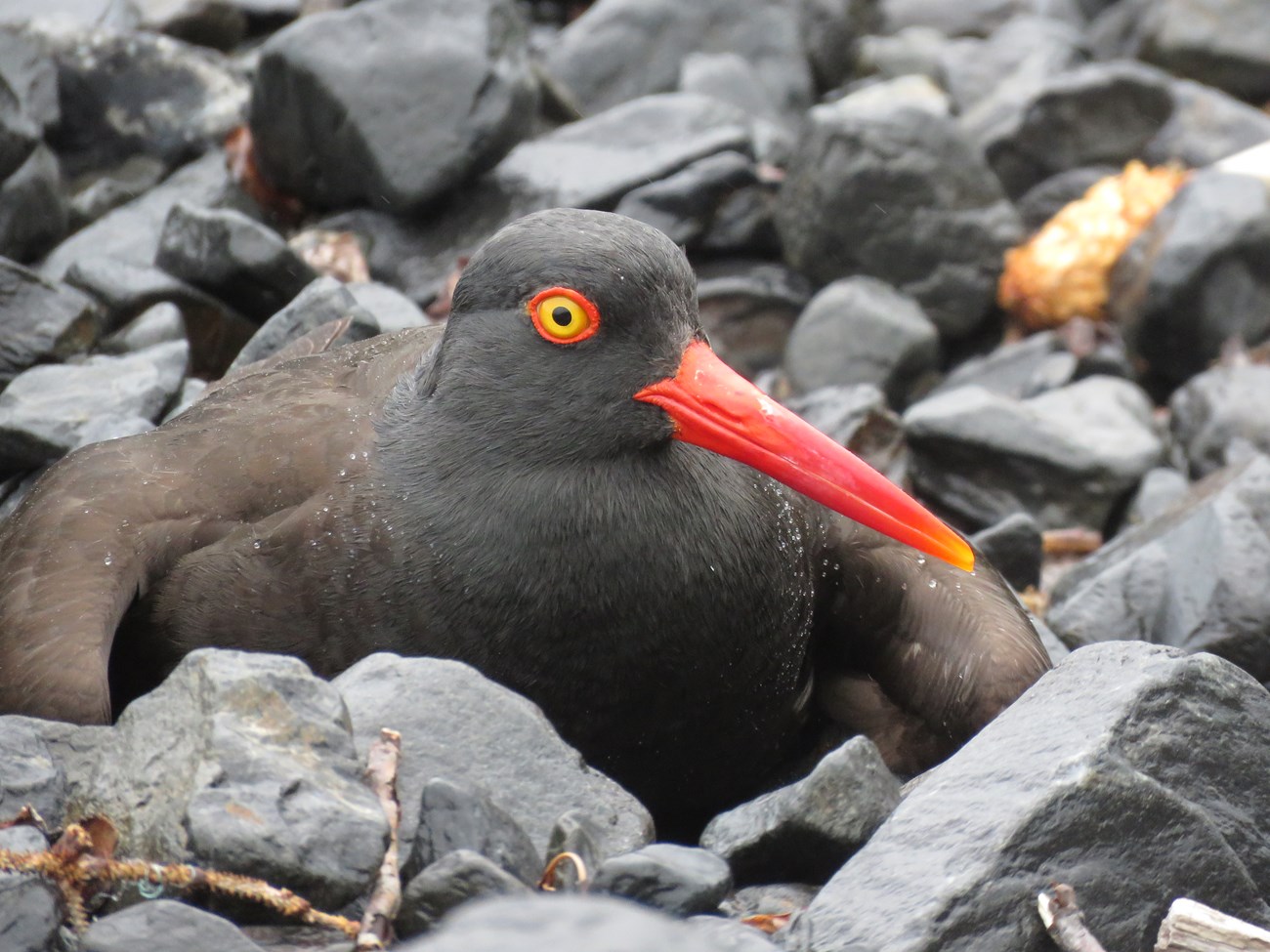
For Bird's Sakes!
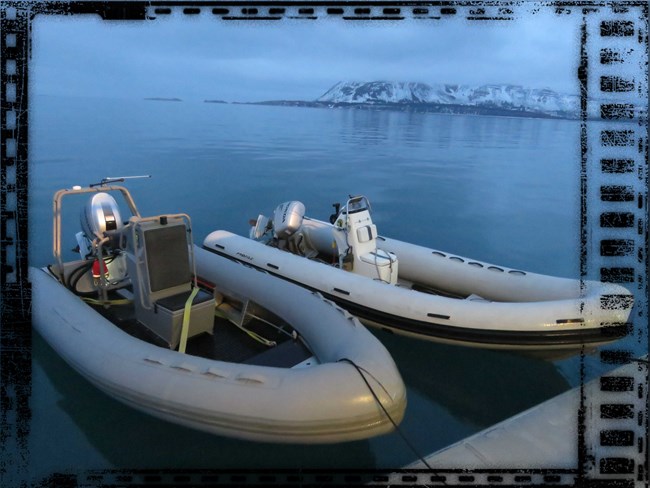
Why go out in one of these boats (see image on right) to a remote coast in Alaska…in the winter, you ask? (I mean, it’s cold there even in the SUMMER, right?) Well, just like you check on your gerbils, fish, or any living thing you are responsible for, parks do too. We want to know who’s out there, where they are, and how they’re doing. We go out in winter and in summer because the types of birds that live along the coast change with the seasons.
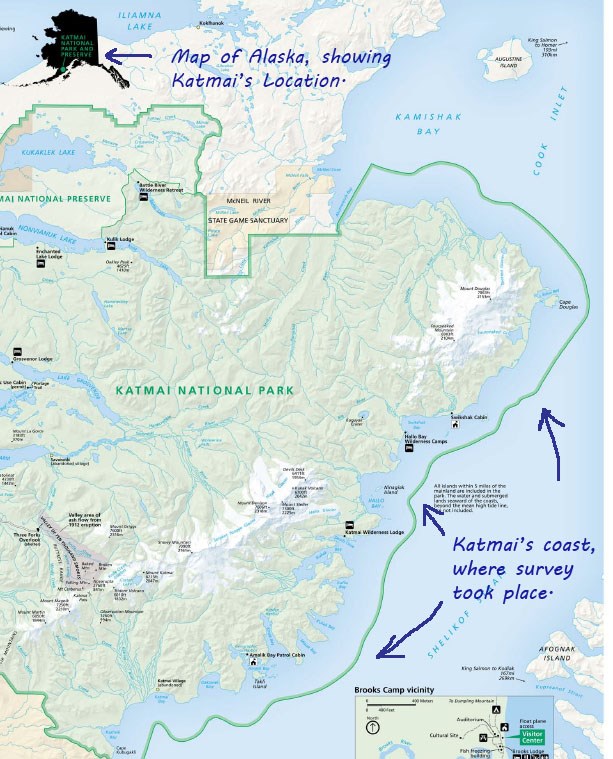
Now, remember those pet fish we referred to earlier? Imagine you came home one day only to discover that they had all died! You’d probably want to know why and keep a close eye on the next batch. Something very similar happened in Katmai in 2016. The researchers found dead birds on EVERY SINGLE beach they went to. A LOT of them.
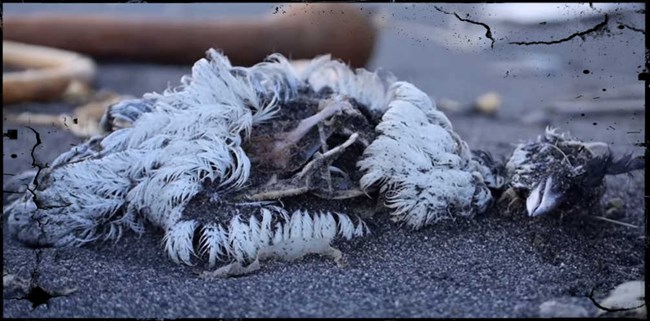
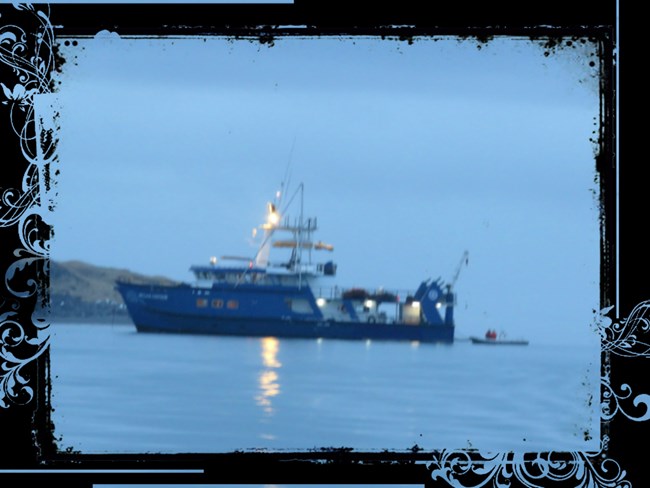
Now this is a little more like it! This is the Dream Catcher, the team’s home base during the four days of the survey. Boy were they glad to see this site at the end of each day!

So, what exactly did they see out there? Lots of beautiful and sometimes even odd-looking birds, sea otters, wolves, whales and a few other inquisitive visitors……….Watch the video below to see who accompanied one of the skiffs!
The requested video is no longer available.

Have you got the codes figured out yet? Take the first two letters of each word in the bird's name and you've got it's code name. Get it? "Em" for emperor and "go" for goose. Try it yourself on the next bird!
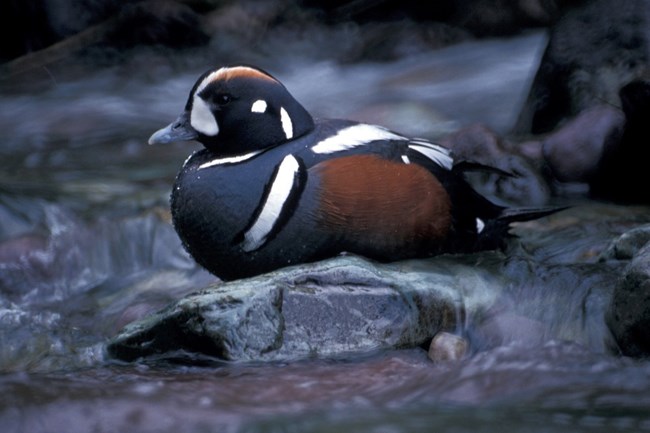
(If you guessed "HADU", you're right!)
So, the good news is, the team found no dead birds this time. But that doesn’t mean the birds are out of hot water (or warm water in this case). These coastal animals are facing all kinds of challenges, including oil spills, plastic they mistake for food, fast-moving boats and climate change.
That makes these surveys really valuable. Remember when we said that bird species can recover if conditions are right? These surveys tell park managers where the popular wildlife hangouts are. Once they know this, they can study the conditions in these areas and make regulations, like setting speed limits on boats, to protect the birds and marine mammals in these areas.
But they can’t do it all. After all, warm water, oil and plastic trash don’t respect park boundaries. You can help by learning how to protect wildlife where you live! Volunteer during beach and stream cleanups in your area! Even using less plastic (straws are one of the most common types of trash found on beaches) and riding your bike or walking (when it’s safe and you have permission) instead of driving can make a difference. You don't have to be a wildlife biologist to help save wild places and protect the amazing animals we share this planet with.
That makes these surveys really valuable. Remember when we said that bird species can recover if conditions are right? These surveys tell park managers where the popular wildlife hangouts are. Once they know this, they can study the conditions in these areas and make regulations, like setting speed limits on boats, to protect the birds and marine mammals in these areas.
But they can’t do it all. After all, warm water, oil and plastic trash don’t respect park boundaries. You can help by learning how to protect wildlife where you live! Volunteer during beach and stream cleanups in your area! Even using less plastic (straws are one of the most common types of trash found on beaches) and riding your bike or walking (when it’s safe and you have permission) instead of driving can make a difference. You don't have to be a wildlife biologist to help save wild places and protect the amazing animals we share this planet with.
